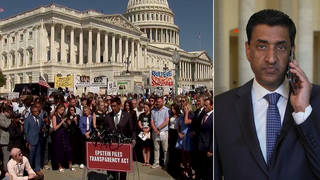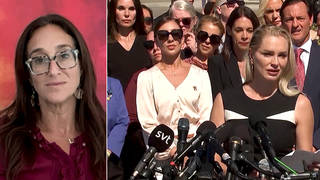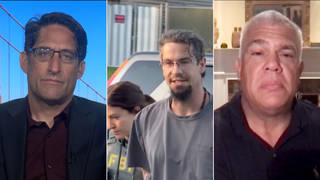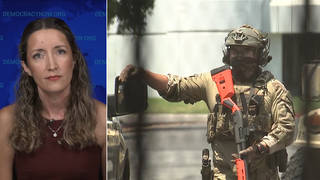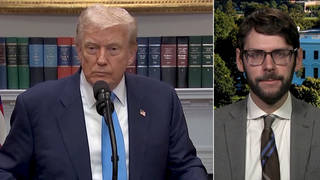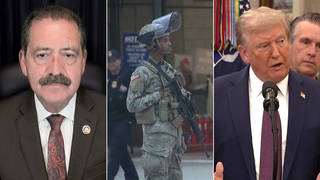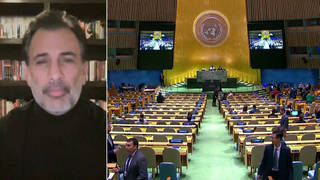
The Trump administration is facing growing criticism for suspending visas for Palestinian passport holders, including for Palestinian officials set to attend the annual U.N. General Assembly this month. When the U.S. denied a visa to Yasser Arafat to address the U.N. in 1988, the General Assembly was moved to Geneva — the U.N. faces similar calls now. The move by the U.S. is “an indication of the unprecedented degree to which the U.S. government has handed the levers of its foreign policy over to the Israeli regime,” says Craig Mokhiber, an international human rights lawyer who formerly served as the director of the New York Office of the United Nations High Commissioner for Human Rights. He resigned in October 2023 over the U.N.’s failure to adequately address large-scale atrocities in Palestine and Israel.
Mokhiber also says there is more the U.N. could do to stop the genocide in Gaza. The General Assembly has the ability to circumvent the Security Council with a “United for Peace” resolution that could force “concrete action” in Gaza.
This content originally appeared on Democracy Now! and was authored by Democracy Now!.
This post was originally published on Radio Free.
